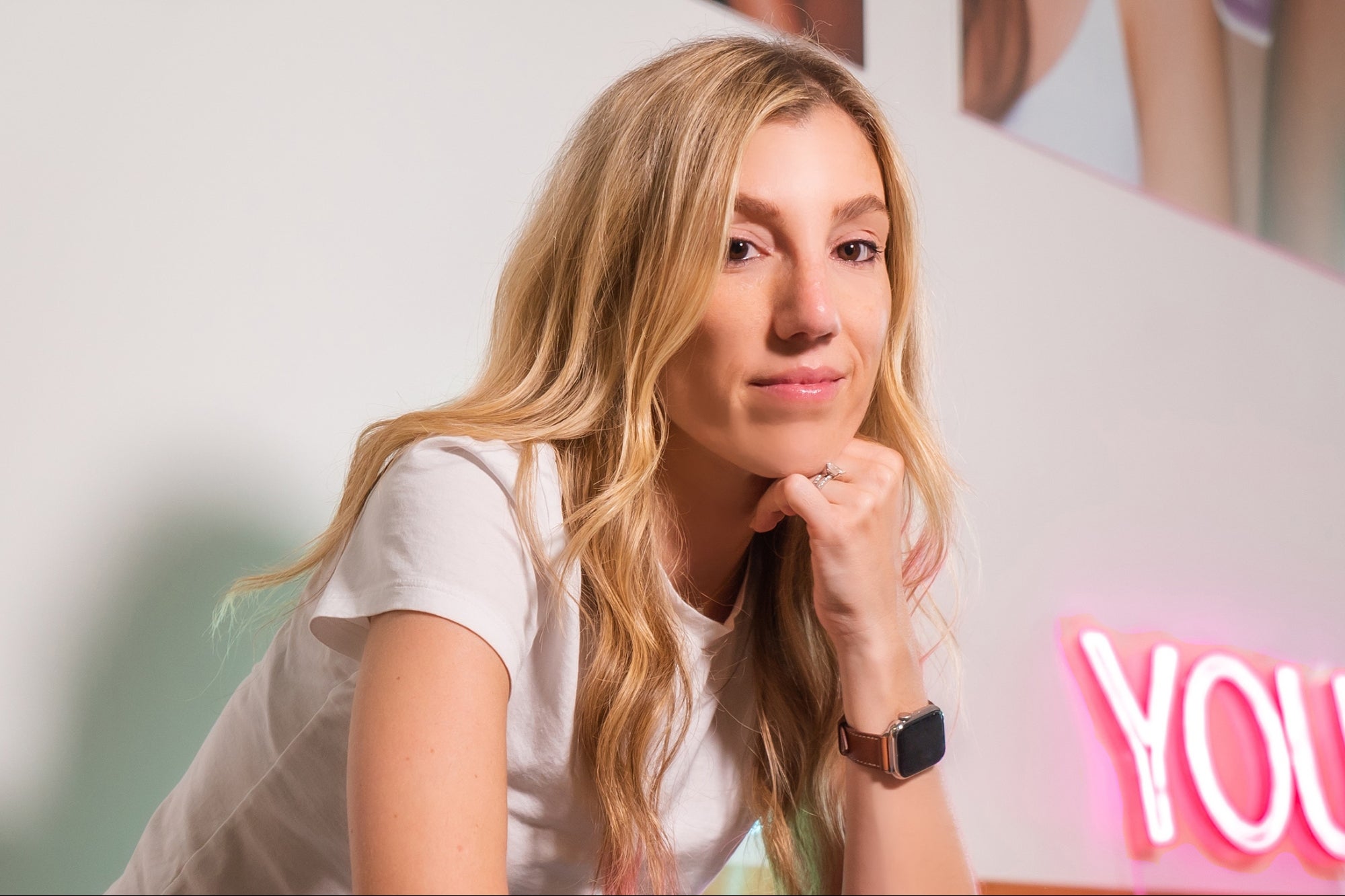Andrea Lisbona grew up in Barcelona, Spain, in a family of entrepreneurs. She knew she wanted to follow in the family tradition and start her own company, but wasn’t sure where to start. Ultimately, she began searching for a product category that was ripe for transformation, but wasn’t in a space with too much competition.
Ultimately, she decided on hand sanitizer. This was back in 2014, and Lisbona believed hand sanitizer could become more of a daily routine product, like skincare — if only it looked and smelled better. “No one looks forward to sanitizing their hands,” she says. “It was mostly done in the health-care space.”
So she and her husband launched a series of hand sanitizers in Barcelona, but struggled to establish the brand in the European market. “We knew that we had a good idea, but to make it really take off, we needed to leave our families behind and cross the Atlantic for the U.S.,” she says. “That’s what we did in 2018.”
They moved to Miami with their hand-sanitizer company, Touchland, which, ironically, was doing fine until the pandemic — when everyone suddenly wanted hand sanitizer. Supply chains collapsed as all kinds of companies tried to capitalize.
“Everyone thinks Touchland is a success from Covid — nothing could be less true,” she says.
But throughout the chaos, Touchland stuck to Lisbona’s vision of making hand sanitizers in a way that people would want them for everyday use. By 2021, Touchland had a tiny presence in Sephora stores. Every quarter, sales were good enough that Sephora gave Touchland more space. Today, they have 163 endcaps in Sephora with 1,000 expected next year, along with retail partnerships at Ulta Beauty, Target and Kohl’s. This year, Touchland expects to sell close to 20 million bottles of hand sanitizer. Next year’s revenue is projected to be more than $100 million. All of this made Lisbona a finalist on our Entrepreneur of 2024 list of 20 innovative leaders.
Related: From Idea to Execution — The Top 4 Must-Dos for Startup Success
What made big retailers like Sephora believe that Touchland’s hand sanitizers would sell?
Sephora saw our products selling three times more than skin-care brands, even in the small spaces they were giving us, so they gave us more space little by little. In two years, we took over the stores with the endcaps.
Two years isn’t very long. How did you handle the challenges that came with your operations scaling that fast?
We’ve been growing triple digits year over year since 2021. Nobody thought a hand sanitizer company could do that. For us, it’s being surrounded by best-in-class partners. They have to be great professionals and even better human beings. When you’re growing that fast, you can’t do it alone.
How did your relationships with those partners evolve?
It’s about transparency and planning, and not trying to do more than you can do. We can be everywhere as a brand, but we have obligations and commitments with our partners. We look first at our obligations with our partners. When they forecast a brand, they never know how good it is going to result. We were always exceeding the expectations. It was about being a good partner.
Did you decline some opportunities to get Touchland’s products on more shelves?
Yes, we did, and it’s very hard to say no. For example, we had a chance to launch internationally with a lot of Sephora stores, and we said no, we’re going to start with one market, the United States. It would be awesome to be everywhere, but it’s important to start in one market and execute. We started with one country, and little by little, we’re going to grow. That is a very hard thing to do, but I think if you want to build a brand that is here 20 or 30 years from now, it does not happen overnight.`
How did you make sure you had enough strategic partnerships to grow the way you wanted to grow?
When a supplier holds too much business for us, they help us qualify another supplier to bring in more business. It’s the best for everyone to diversify.
Did your growth in retail stores — the brand awareness — also help you grow online?
Yes. Across TikTok and Instagram, we have 170 million organic impressions with a total combined following of 720,000. We also grew on Amazon and in multiple places.
The magic about it is that we’ve never had to pay anybody to talk about the brand. The celebrities, the micro-influencers, it’s been purely organic. I think that shows the quality of the product.
Related: I Teach Aspiring Entrepreneurs Why It’s Good to Fail — Here’s How to Turn That Failure Into Success

